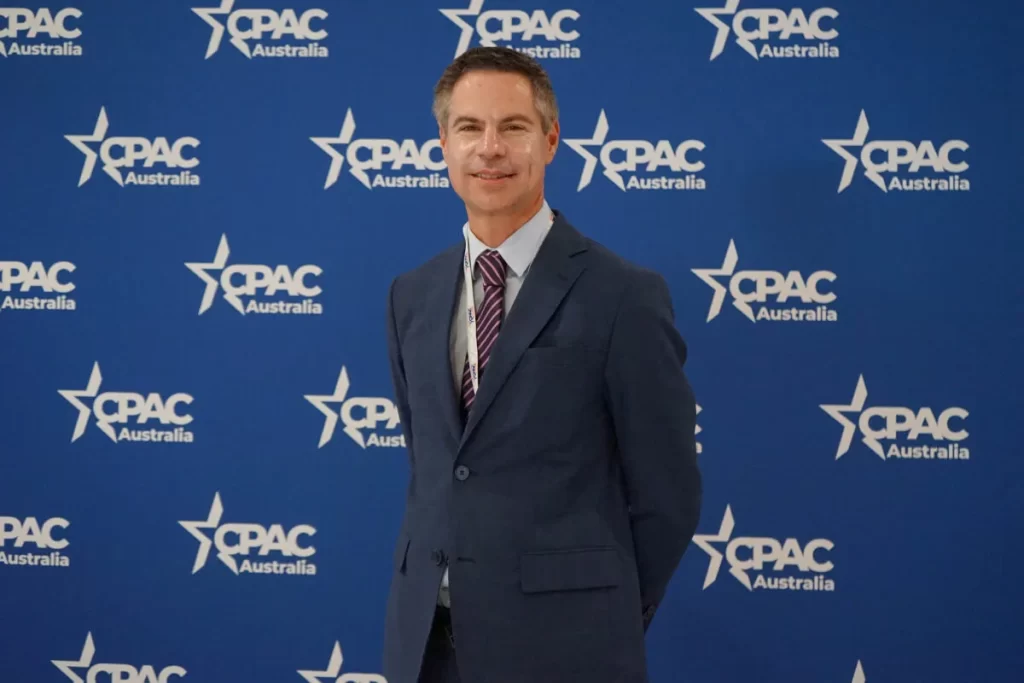The natural environment is actually in a much healthier state now compared to how it has been portrayed by climate change activists, according to California-based environmentalist Michael Shellenberger.
Shellenberger, founder and president of Environmental Progress and author of “The Death of Environmentalism,” pointed out several positive instances of environmental management and flourishing natural conditions at CPAC Australia—the Conservative Political Action Conference—in Sydney on Oct. 1.
He said there was more coral in the Great Barrier Reef than there had ever been in 36 years. At the same time, the area of land burned by forest fires had declined by 25 percent globally since 2003—an area the size of Texas.
“What about hurricane frequency? I had the great pleasure of correcting one of the witnesses on a Congressional Panel a couple of weeks ago, who claimed that hurricane frequency and intensity were increasing. In fact, the best available science predicts that there will be a 25 percent decline in hurricane frequency in the future, even alongside a five percent increase in intensity, which we are not seeing at this point,” he said.
Shellenberger also noted droughts in Europe were not increasing and deaths from flooding were also declining.
“The death rate from natural disasters has crashed, we have four times as many people as we did in the world 100 years ago. The death toll has declined about 90 percent in the United States,” he said.
“Somewhere between 305,100 people die every year from natural disasters. More people die walking from their bed to the toilet than they do from natural disasters.”
In the United States, over 100,000 people died from drug overdoses and poisoning every year, while over 30,000 die from car accidents.
Natural Disasters Conflated with Extreme Weather
Speaking later to The Epoch Times, Shellenberger said it was crucial to understand the difference between extreme weather events and natural disasters.
“The number of natural disasters, weather-related disasters have been going down for 21 years.”
The environmentalist noted that the most significant misconception about climate change is that it “poses some existential risks to humankind.”
“Not even the United Nations says that,” Shellenberger argued. “It’s true that the planet is getting warmer, but we’ve been doing a really good job of adapting to it.”
While the concept of a climate emergency has been promoted by scientists engaging in political advocacy, scientific studies suggest that “it’s anything other than a kind of incremental, cumulative issue.”
“The psychologically damaging effect of social media, the rise of drug overdose deaths in the United States, the crisis facing Europe because of lack of energy, these are all much more important problems to worry about than climate change problems,” he added.
“If you want to worry about environmental problems, then you should worry about the overconsumption of fish. That’s one of the environmental problems that doesn’t get enough attention.”
What Does Religion Have to Do With It?
The author’s comments come as political leaders, experts, and media commentators continue to push heavily for climate change action and policies such as net-zero and electrification of economies.
The moves are coming at a heavy cost to governments, expected to plunge billions—and likely trillions—into building renewable energy sources (solar, wind), construction of new transmission infrastructure, and widescale decarbonisation of transportation including encouraging take-up of electric vehicles.
Shellenberger said three factors were driving the global push for climate change action.
“There’s financial motivation by people that want to sell renewables, particularly solar panels made in China. There’s the desire for kind of political power, cultural power, social power,” he said.
“And then there’s sort of the ways in which climate change has become a religion, and it’s provided people with a kind of purpose in life.”
“I think that when people stopped believing in traditional religions, they need to fill that gap with some other religion, and so they’ve made climate change into a kind of apocalyptic religion as a replacement for Judeo Christianity,” he said of the West.
Source: Epoch Times


